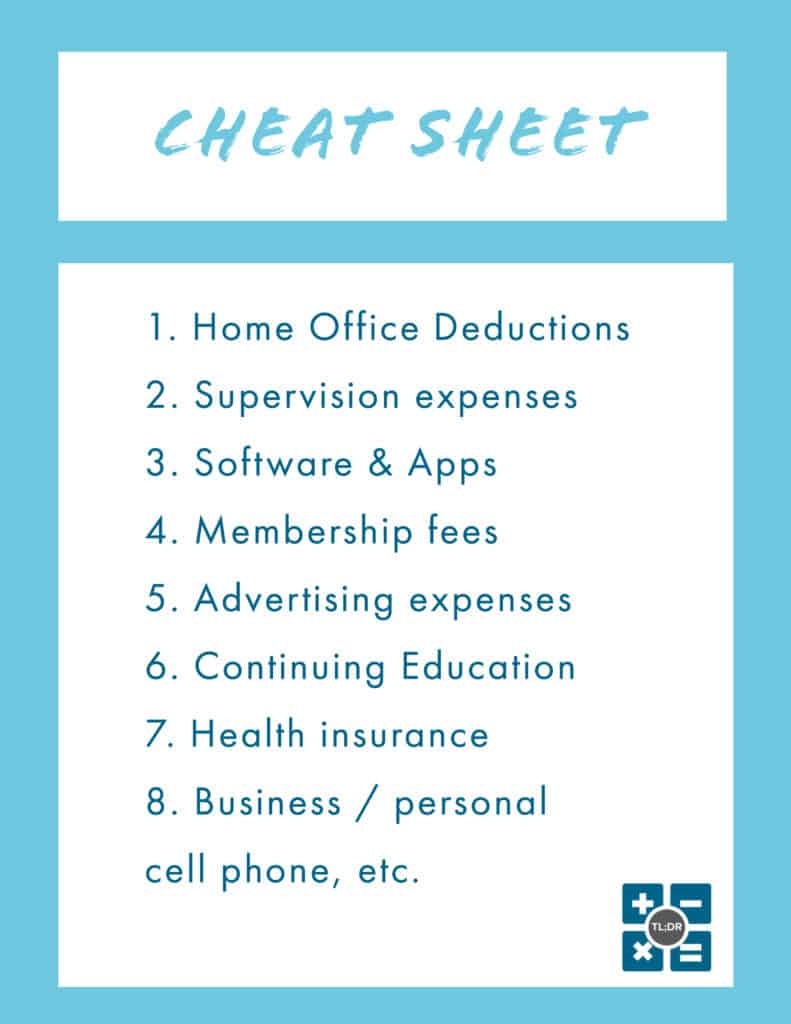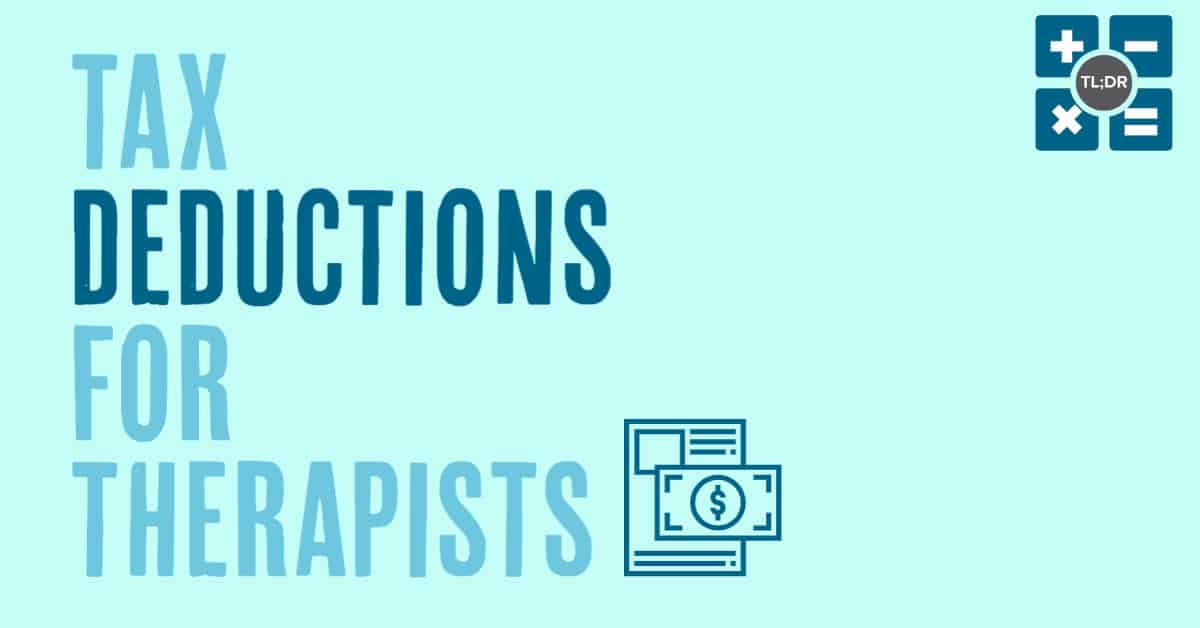“I shall never use profanity except in discussing house rent and taxes.”
Mark Twain
Some things never change. Luminaries like Mark Twain were rightfully complaining about rent and taxes 150 years ago, and sure enough these two expenses remain among the top two that befall small business owners. Today we are going to talk about tax deductions for therapists, your primary escape from being dragged into ruin by taxes.
In general, most of your legitimate business expenses will count as private practice tax deductions. Now, when we say legitimate we specifically mean reasonable, ordinary, and necessary expenses. Congress recognizes that you have to spend money to make money, and hence they’re willing to give you a break on said spending of money.
Even with Tax Day a ways off, it’s the money you spend today that affects the taxes you will pay next year. Let’s dive into some tax deductions for therapists that warrant some explanation.
Special Tax Deductions for Therapists Considerations

Since this article is about a laundry list of tax deductions, it might not read as cleanly as, say, a deep dive into the Profit & Loss Statement. Below is a list of sundry items that are deductible for therapists. Keep in mind that all expenses are only deductible if they are reasonable, ordinary, and necessary for your business.
- If you want to defray your burdensome mortgage or your house rent as Mark Twain mentioned, consider taking the Home Office Deduction. However, we advise you to educate yourself thoroughly on this deduction before you attempt to use it because there are several pitfalls.
- Good news! Supervision expenses, as required for your therapy licensure, are deductible as long as they’re reasonable, ordinary, and necessary for your business.
- You know all those sundry apps and software packages you use to keep everything running smoothly? These are deductible!
- Membership fees for professional organizations are deductible.
- Buying up ad space in Psychology Today is a deductible advertising expense.
- Continuing Education is deductible. If your employees buy their own CE and submit receipts to you for reimbursement, then you need to set up an accountable plan.
- Health insurance is deductible if you pay for your own plan. It doesn’t count if you’re covered under your partner’s insurance plan; that’s an expense for their employer’s business.
- If you have items that you use personally and for your business (such as a cell phone), come up with a reasonable way to determine what portion of the use is personal and what portion is for your business. Using a percentage is one of the simplest methods (if you use it for business 30% of the time, then 30% of the expenses are business expenses).
At this point you might be thinking about one of your biggest expenses of all, one that Mark Twain didn’t mention — student loan interest.
While you can surely argue that it was reasonable, ordinary, and necessary for you to get your psychotherapy degree in order to set up your own practice, unfortunately it’s not deductible as a business expense. You can revisit student loan interest expense when it comes tax time, and put it on your 1040 (but not your Schedule C).
TL;DR: Generally speaking, most private practice expenses you incur that are reasonable, ordinary, and necessary are tax deductible. Make sure that you’re not mixing business and personal expenses together, as with student loan interest or payments for your personal cell phone. Always keep in mind that your goal is to maximize your after-tax income, not necessarily minimize your taxes! If you have questions about tax deductions for therapists, schedule an introductory session with us any time.






